Dissonance Dance’s Shawn Short is ensuring his place within DC’s storied legacy of dance
Short founded his own dance company to share a world of history and hard-won wisdom with his dancers and students

Caught by his mother cruising a gay internet chatroom, a closeted 20-year old Shawn Short had little choice but to come clean. “Your son likes boys,” he told her.
Those four little words ignited a firestorm in the family’s conservative household. Short, then living at home in Prince George’s County with his mother and stepfather after a dissatisfying year away at college, was soon being shown the door. “Well, they didn’t ask me to go,” Short says. “But when my stepfather said, ‘Your mother thought she had a son.’ And then my mother had said, ‘You got me crying at work,’ and then said nothing. I just said, ‘Your silence is enough for me to move on.’ And I did.”
Still searching for a path to pursue a career in dance, Short suddenly had to find shelter. Thankfully, like countless parents before them who learned to embrace their LGBTQ children, his mother and stepfather eventually made their way back to their son. But in that precarious moment, as countless LGTBQ people have had to do before him, Short found his chosen family among friends and within D.C.’s queer ballroom culture. “You know when they say you can pick your friends, but you can’t pick your family?” he says. “My friends became my family.”
A statuesque head-turner on the dance floor, Short quickly became a force in ballroom and house culture, and a leader in the new House of Essence, walking categories like European Model Effect. He was couch-surfing, staying with friends, working retail jobs, and spending far too much of his modest income on outfits and materials for the balls. An accountant friend he was staying with made him take a hard look at his finances and his priorities, encouraging Short to define a direction for his life. “So I moved out of that spot with the accountant, moved into this rooming house on Rhode Island Avenue,” he recalls. “Then that was the way that I was able to start going back to school. I ended up going to Howard at that point.”
Graduating with a BFA in Musical Theatre, Short largely credits his Howard education, experiences, and exposure to mentors like late, great alum Ossie Davis with focusing his intentions for a future in dance. “I don’t know what it’s like now, but at that time, we were groomed in a way to just go out and get it. And so there were times I remember we would talk about the day we were going to build companies. And some of us would do that, because this started back in school.”
Short, who also completed a MFA in Dance at the University of Wisconsin, brought that dream to life in 2007, when he founded D.C.-based professional dance company Dissonance Dance Theatre.
Now in its 13th season, and the region’s only African-American-managed contemporary ballet company, DDT has grown into what Dance Spirit Magazine called “one of the 11 small-but-mighty emerging dance companies outside NYC and L.A.” And, Short, building on his years of performing nationally and internationally — and studying with faculty from the Alvin Ailey Dance Center, the Washington Ballet, and Dance Theatre of Harlem, among others — has grown into a generous and committed choreographer, company director, and educator, launching the Ngoma School, the official training school of DDT.
No arts organization has an easy road these days trying to maintain space and funding, and DDT has taken its share of blows — most notably, seeing their former home at CulturalDC’s Flashpoint Gallery sold out from under them with no notice. “When I talked to the Executive Director,” Short says, “it was like, ‘You didn’t even tell us, and we’ve been in your doggone space for nine years.’ She was like, ‘I’m sorry, it’s real estate. We needed the money.’ I said, ‘I understand that, but you could have told us.’ She just looked, she said, ‘Baby, I know you’re smart. You’ll figure it out.’ And that type of communication has been literally since day one. It’s like, ‘Oh, well, you’ll figure it out.’
“That’s why I have to keep telling myself, the days that it gets hard, no boyfriend, whatever, if it gets hard and your funding is not where it needs to be, or when you just feel like you’re down and out, you have to say, ‘Is it worth it?’ And if it is, Shawn, you still have breath in your body to make it happen. Figure it out.”
Through the challenges and triumphs, like DDT’s acclaimed performances year after year at Atlas Performing Arts’ Intersections Festival, Short has figured out how to keep building, recently adding a business management degree to his portfolio.
He also has continued to pay forward kindness that was shown to him when he needed a helping hand. In DDT, he’s created a home for young dancers who, like him, might need more than merely a professional platform. He and his dancers are like family, he says, though he scoffs at the cliché. And he acknowledges that feeling so fiercely supportive of them can have unexpected drawbacks, “because you already know when it starts that there’s an exit,” he says. “For every dancer that shows up, remember you’re on a timeline. They could be with you for one show and all of a sudden gone. They could be with you for five years. I’ve even had one that was with me for eight, and you get so comfortable with them being in the space, so [it’s] like, you don’t feel alone.”
Alongside his fellow artists and educators, Short has forged a community that extends beyond DDT, its dancers and staff, to include the Ngoma School, and a just-published hardcover book of Short’s photography, Timeless Dance Remixed: Images of the Award-Winning Dissonance Dance Theatre of Washington, D.C. The company will extend its reach even further with a new streaming docu-series, His Eyes Saw Dance, that follows the day-to-day work and artistry of Short and the DDT dancers, and highlights the history of black dancers and companies in D.C. As DDT gets set to perform in their tenth consecutive Intersections Festival, debuting Short’s latest full-length work Diaspora, he has his mind on keeping up the pace, and cementing his place within D.C.’s storied legacy of dance.

METRO WEEKLY: How did His Eyes Saw Dance come together?
SHAWN SHORT: Donovan Johnson, a student of mine, was also a film student at Howard. He showed up when we had a program called Dawn, a black male dancer program that we started when we were at Flashpoint, where if you just were interested in dance, trying to get into concert dance, and you didn’t have the funds or means, that we would train you for free. Jeremiah was in that program, but I was telling him, “You’re just too much of a film person. I feel like dance is not your forte. You like it, but it’s not your thing.” So he went on, he’s over in L.A. working as a production assistant for a Netflix show right now. And he brought it to me one day, we were talking on the phone, and he said, “You know what, Shawn, it would be cool, as much as you’ve done, it would be really cool if there was like some type of episodic something that we can watch. So that if you die today or tomorrow, everybody knew what the hell you did.” And I was like, “Yeah, whatever.” I just dismissed it.
And then he brought it up a second time. And I said, “You know what…” Because I was looking at Wistia. They’re a platform, like Vimeo, but you can use them to get your video content up to create brand affinity. They were saying that the new marketing thing now is really about brand affinity and getting people to understand your brand as a cause. I said, “You know what? I think we would have better ticket sales, better enrollment in the school, because it’s about engagement not disruptive marketing.” It’s not about just buy now, buy now, but look at this story and see where do you fit in this?
After talking to Donovan, it was like, “Okay, how are we going to do this?” Because that’s a big idea. Like the episode, it was a lot of work. Like the book, it’s a lot of work. And a lot of people talk the talk but don’t really walk the walk, you know?
MW: As a choreographer, what sort of dance are you trying to put into the world?
SHORT: I guess, a refined choreographer who has mastered the lexicon of classical ballet, who is black. I think that is the big issue right now. And I hear it every time I go into a room and it’s black ballet folks, and then everybody else in the room. The first thing they always cry about is how come when larger white institutions bring in black choreographers, it’s for the contemporary, but you never value them enough to bring them in as a ballet choreographer? You always bring them in as the alternate to what you consider the great masters. People are looking at David Dawson, they’re looking at Christopher Wheeldon, they’re looking at Liam Scarlett, they’re looking at, William Forsythe. I haven’t got to a black name yet. And honestly, I don’t think we ever will.
Am I mad about that? No, because I had to make a path. So when Dance Magazine gave me the award for contemporary ballet for the month, I was like, “Oh wow, okay.” And then I got a Princess Grace Award in Choreography nomination from Missouri Ballet Theater. But then it was funny, I applied to Joffrey Ballet, [which] has this choreographer of color competition and I did that. Haven’t gotten it. Stopped after like the fourth year. But I said, “Do you know what’s interesting? Everyone else is saying that I am valued enough to do this and see my voice in this, but they’re not going to let me play in their space.” Now I can look at this two ways. I can get mad about it and bitch and be like, “Why?” But then I say, “Stop, Shawn, that’s like you building a house, sitting in the house, and then someone on the outside of the house is telling you that you’re wrong because I won’t let them live there.” That’s how I look at it with this whole diversity piece sometimes. Sometimes it’s like, “Well they created this house. It’s like if it was a country club.” They say, “Well, they won’t let black people in.” Well, if it says on the door that is for members only, then it’s members only.
Now, if it’s a public thing and they won’t let you in, okay that’s a problem. But if it’s a private business, a private entity, and they have a certain criteria and that’s what it is, I can’t get mad at that. If it was a public pool, yes I can. It’s public. So I think that is the thing that keeps me going, as far as a choreographer, is your voice has to stay valid because there’s not that many spaces.

MW: One space that you’ve found, it seems, is the Intersections Festival.
SHORT: This is our tenth year participating. Intersections, and the D.C. theater scene embraced Dissonance first. The dance scene did not.
MW: Do you ever miss performing?
SHORT: No. I can tell you that right now. I don’t. I don’t, because they say, “Do it until you’re tired of it and then you won’t miss it.” So the last time I was onstage, I was like, “Thank you, this is it.” And I just smiled and they were like, “He’s smiling.” My friend said, “You were smiling so big.” I was like, “Yes.”
MW: You knew going in that it was your final performance?
SHORT: Yeah. I knew it was. After that last one, I was like, “I’m good.” And that’s when I had taken a break, went back, got that tour, went on that tour. I came back and the last show, I was so excited to get back on that damn plane. And when I got off that plane, I remember just taking off. Everybody went this way and then I was gone, because my stepfather was right there at the gate. I walked through, I said, “Hey,” I grabbed my bag that was going through the thing, and they were saying, “Shawn, where are you going? You didn’t even say goodbye.” Done.
I was so excited to be back and eating. I said, “I don’t have to worry about it anymore.” I don’t have to worry about being in class like that. I don’t have to worry about having to be called to be a demonstrator and have to be perfect. There’s so much pressure. I enjoyed it. I’m still somewhat animated, so I mean, that’s fine, that is who you are. But that desire to be onstage and the center of attention, I’m not missing it. And I told that to the dancers. Be really clear and know when that bow happens, and you start to tear up or you start to get emotional and you almost feel like the kid that wants one more piece of chocolate, you’re not done. You’re not done. If you take that bow and you’re seeing all your friends or colleagues in your bow and you’re like, “Thank you so much.” And you’re just smiling like, “We did this, y’all,” you’re done. “It’s been great. We even had a good time. We have it on footage,” and then they go. You’re good. So no, I don’t miss it. I think that those who do, it’s almost like Jay-Z saying he was retiring and then he showed right back up, and you’re like, “Dude, didn’t you say you retired? That was your last album.” Let it go. So no, I don’t.

MW: You mentioned your stepfather picking you up at the airport. I guess there was some reconciliation?
SHORT: Yeah, there was. Me and my family had not spoken, I think, for like five years. It was a lot of mess. I remember one day, I found this box on the steps of the house. I said, “What is this?” And then my stepfather goes, “You left something.” I’m like, “I haven’t been there five years.” I opened the box up, my little mixed chihuahua is sitting there looking at me. At that point I just said, “If y’all are that malicious and mean-spirited to take out, I guess, your frustration or anger with me, whatever that may be, on this dog, then it’s cool.” It’s cool because they always say, “Respect your family enough, and your parents, and you live longer.” That’s an old Southern something, but I just let it go.
I called my dad and my stepmom, because they have this extended family. Everybody lived, my aunts and all of them, lived in this one big house. So I called them and told them that, “I can’t have a dog where I’m at. Can y’all come get the dog?” And so, they hadn’t seen me in a while either. So they saw me, they give me these big hugs because my dad had remarried to a white family. They lived in Atlanta. And they came in the car, one big happy family, “Hi. Oh, my god.” Got the dog, brought me a care package, just like, “Oh, Shawn, you know it’s great that you’re in school and we’re so happy for you.” All of that. “Thank y’all.” Got the dog. Dog was gone. I went into school. About a week later, I get a [voicemail] from my stepfather and it was saying, “We’re coming back to get the dog.” I said, “The dog is not here. The dog is gone.”
MW: He’d had a change of heart?
SHORT: He had a change of heart. And I think a lot of what my mother might have been going through — because I feel like a part of me feels like I disappointed my mother — was because I didn’t turn into the Ken doll, like the perfect… I don’t know if you can remember those McDonald’s commercials with Calvin?

MW: Yes, I remember Calvin. The whole neighborhood loved Calvin because he was working.
SHORT: The whole neighborhood, everybody loved Calvin and shit. Everybody. My mother would be like, “Listen to the Calvin commercial.” And everybody worked at McDonald’s because of the value that you saw in Calvin. So then I started working at McDonald’s, and so I was fighting for my mother’s attention constantly. Because my grades were great, I was playing an instrument, I was doing everything. I was playing the flute and the sax and the piano. And piccolo, but that was marching band. I was doing all of that. Because my mother loved jazz music, I started playing jazz music. My mother enjoyed Herbie Hancock and Junior Cook, and he played flute. So that kind of stirred me to play flute.
Basically, I started to notice in my life that I was always trying to get my mother’s approval as I was doing everything else. Mom, look. Mom, look. Make her proud, make her proud. But then, I think when I turned around and became the golden fleece, everybody said I was the Calvin of the family. However, when Calvin became gay, it was like, “Oh, ain’t no Calvin of mine.” It became that. So then it didn’t matter what I was doing.
[Eventually] word got back to my cousin that I was about to graduate from Howard. Whole family was like, “Shawn’s about to graduate from Howard.” My mother didn’t know, and then my stepfather said, “We need to have a meeting.” I said, “We don’t need to have a meeting.” He was like, “Shawn, for the sake of…Can you just have the meeting?” So I showed up, got to the meeting, my mother was quiet, I was sitting there. He said, “We’re having a family meeting.” And I just said it, “Why are we having this meeting? Mom, you don’t care.” And my mother just got enraged and like she was about to start crying and she said, “What do you expect me to say, Shawn? What was I supposed to say? Anything I would’ve said at the time would have drawn you away from me.” [I said,] “Your silence did.” She got quiet. She didn’t know what to say.
My stepfather, at the meeting, we’re talking, and he said, “I hear that you’re about to graduate from Howard.” I said, “I am.” And he was like, “Me and your mother would like to be in attendance.” I said, “Why? I did this by myself.” And then he said, “Well Shawn, we’re family.” I said, “Were we family when you boxed up my dog? Were we family when y’all were silent and I was in the street trying to figure it out?”
And then my mother was like, “No one told you to leave.” I said, “But no one told me to stay either.” They got it, because I was real clear about, I can get the fuck up and leave. Then my mother was like, “Do you owe any bills?” I said, “I do, actually. I owe $500.” The library always thought I had books — I didn’t, but Howard’s whatever. So I went ahead and said, “Yeah, I have $500 in fees I have to pay.” My mother said, “Well, I can pay that.” I said, “I don’t need your money.” Mom said, “I want to pay it.” I said, “Do you really?”
Me and my mother are the same person in the sense that, it’s a sense of, I will do it on my own if necessary. I will fight to make sure I can get it done. My mother’s the same way. That’s probably where I get it from. But if I get that headstrong, I don’t tend to back off of it. So if you left me to figure it out, I’m going to go figure it out. Don’t tell me in the middle of it change paths or do it this way, because I’m going to attack you because you left me to do it. That’s what she was doing. So after a while, we got in the car. They were taking me back to my space. My mom stopped and went to the ATM machine. She gave me the money and she said, “Take this money, Shawn.”

MW: One major theme for you and for the company seems to be value yourself — know your value. It feels like a philosophy you take through a lot of your life.
SHORT: Yeah. I’m not a super religious person. My family is. My grandmother, grandfather are both reverends. My great-uncle’s a reverend. So, my mother grew up one of eleven kids. All of them had to be in a super Christian household.
In middle school, I was on this quest because I was always in the library. The library was a space that I could go to that I didn’t have to worry about anything. I could just go and explore shit. I would get in there, and I just went into the reference section on religions and there were books on Paganism, Satanism or whatever. And I would pick these books up and read them. I would take them home, and my grandmother would be going off. But what I realized from looking at Hinduism and Confucius and then Pagans and Muslims, everybody was saying the same thing, [though] some did it more than others: value you and value your community and work with each other. I would call it basic morals, but it’s so funny how that is not what it is.
I was talking to Anthony, one of my mentees, who also was in the company. He was talking about his life and he was just like, “Ugh.” And I said, “You know what, Anthony? You can change anything you want in your life. You don’t like your hair color, change it. You don’t like your weight, change it. You don’t like your man, change it. You don’t like your family, change that too.” You have to be right, so that you can go and deliver. Like family members who got real toxic, I pulled them out. I said, “I love you, but I just can’t put you in my circle anymore.” Got into major arguments with family who were like, “You think you’re…!” I didn’t think anything.
All I’m saying is I can control this, I can’t control that. And in doing that I sleep better, less stress. You value yourself enough, change yourself so you’re happy with yourself. If you’re happy with yourself, you’ll project that everywhere. So yeah, just value yourself. Because if you do it, then everybody else will start doing it too.
Dissonance Dance Theatre performs “Diaspora” on Saturday, Feb. 22 at 8:15 p.m. as part of Intersections Festival 2020 at Atlas Performing Arts Center, 1333 H St. NE. Tickets are $35. Call 202-399-7993, ext. 2 or visit www.atlasarts.org.
Support Metro Weekly’s Journalism
These are challenging times for news organizations. And yet it’s crucial we stay active and provide vital resources and information to both our local readers and the world. So won’t you please take a moment and consider supporting Metro Weekly with a membership? For as little as $5 a month, you can help ensure Metro Weekly magazine and MetroWeekly.com remain free, viable resources as we provide the best, most diverse, culturally-resonant LGBTQ coverage in both the D.C. region and around the world. Memberships come with exclusive perks and discounts, your own personal digital delivery of each week’s magazine (and an archive), access to our Member's Lounge when it launches this fall, and exclusive members-only items like Metro Weekly Membership Mugs and Tote Bags! Check out all our membership levels here and please join us today!








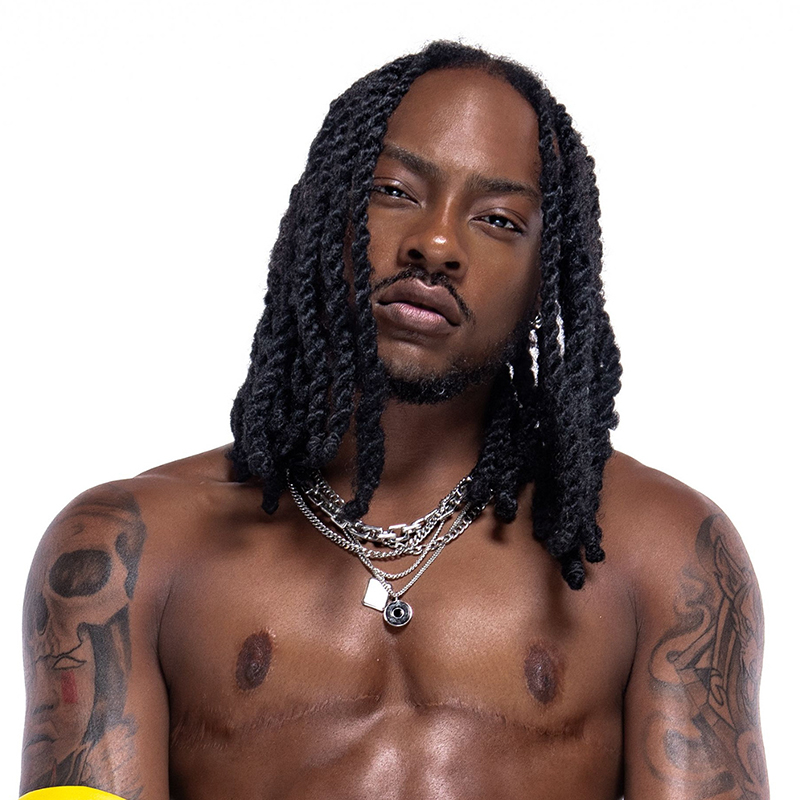
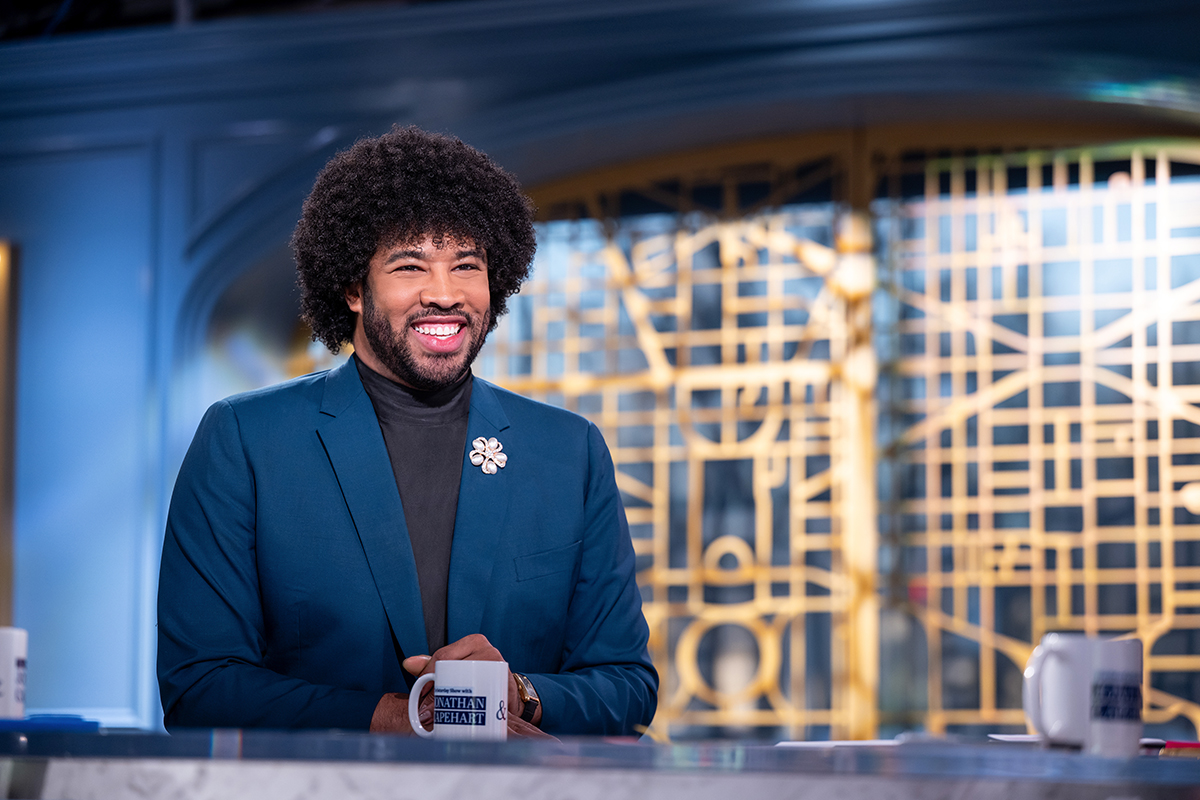
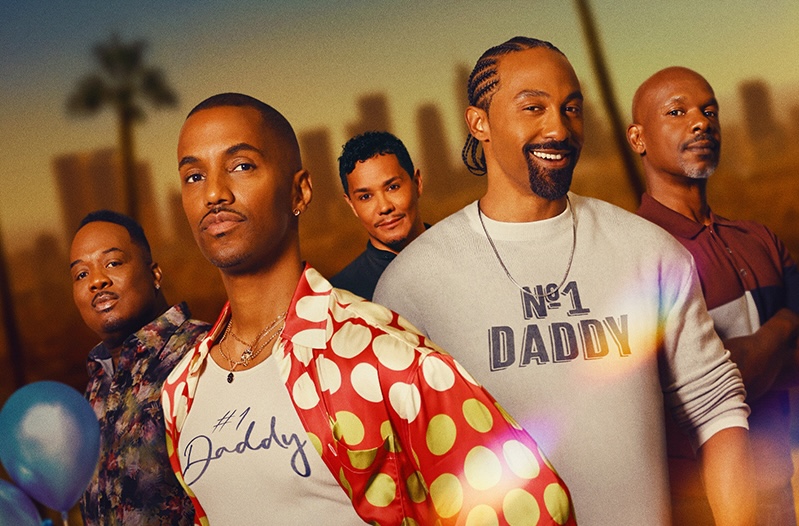













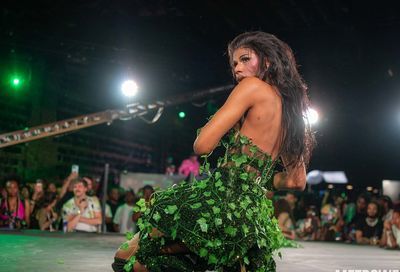
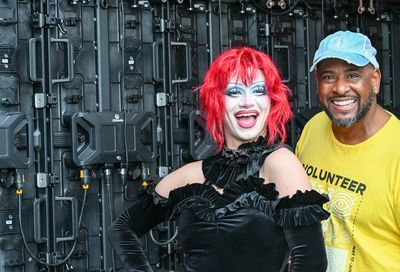
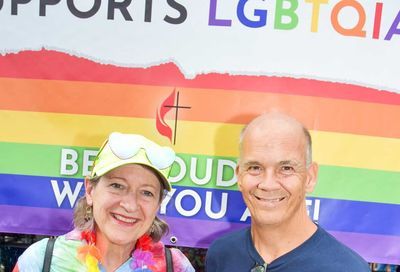
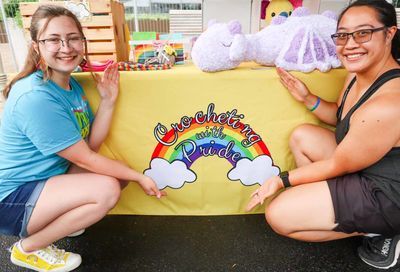
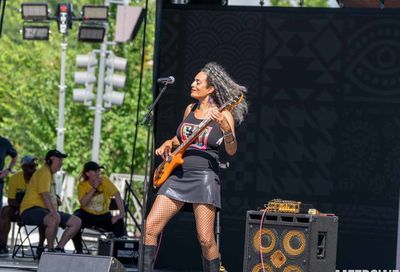
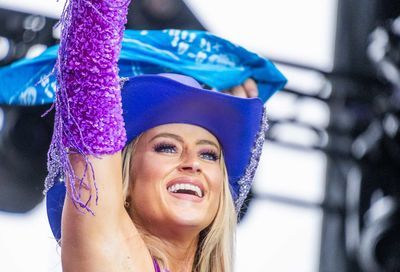
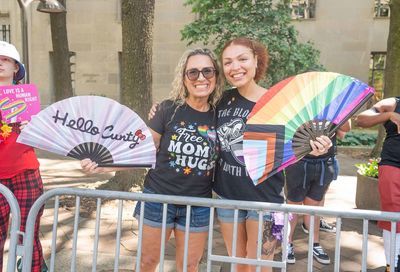
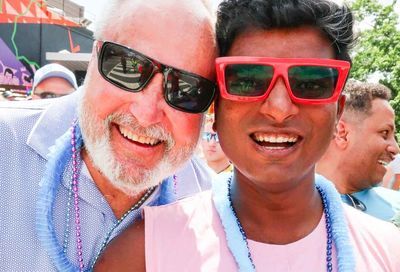
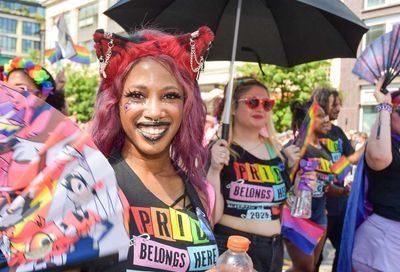
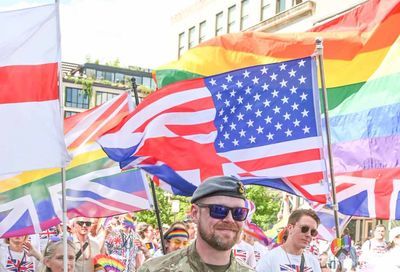
You must be logged in to post a comment.